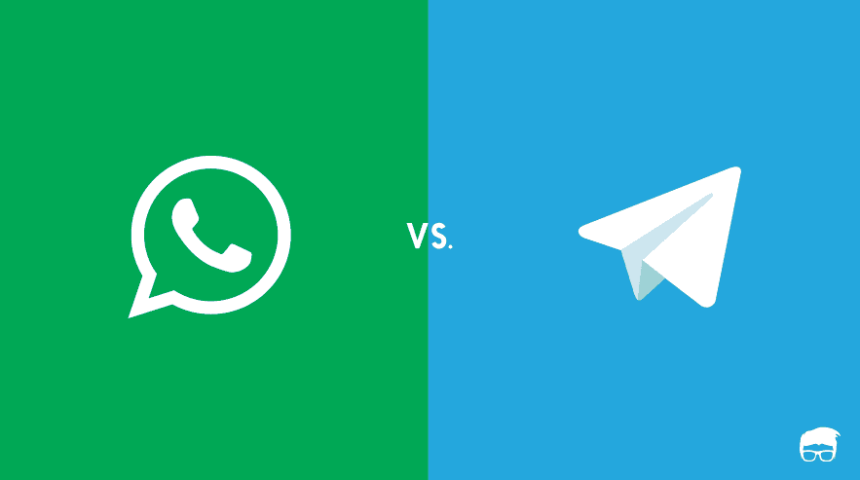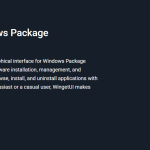In the digital age, instant messaging applications have become essential tools for communication. Among the myriad of options available, Telegram and WhatsApp stand out as two of the most popular platforms. Both offer unique features, security measures, and user experiences that cater to different needs.
This article will explore the strengths and weaknesses of each platform, providing insights for users who are considering which app to adopt.
Overview of Telegram and WhatsApp
Telegram
Telegram, launched in 2013 by Pavel Durov, emphasises speed, security, and privacy. It is a cloud-based messaging app that allows users to send messages, photos, videos, and files of any type up to 2 GB in size. One of its standout features is the ability to create channels for broadcasting messages to unlimited audiences, which is particularly useful for businesses and content creators.
For those interested in the latest updates, telegram下载 provides easy access to download the application on various platforms, ensuring users can enjoy its full functionality.
WhatsApp, founded in 2009 and acquired by Facebook in 2014, has become synonymous with messaging. It boasts over 2 billion users worldwide, making it one of the most widely used messaging applications. WhatsApp offers end-to-end encryption, ensuring that only the sender and recipient can read messages. The app supports text messaging, voice and video calls, and file sharing, but it has a file size limit of 100 MB.
WhatsApp’s popularity can be attributed to its user-friendly interface and the integration of features like voice notes and location sharing. Users can also utilise whatsapp网页版登入 to access their accounts from a browser, making it convenient for those who prefer typing on a keyboard.
Key Features Comparison
1. Security
Both Telegram and WhatsApp prioritise user privacy, but they employ different approaches.
Telegram
Telegram offers a unique feature called Secret Chats, which uses end-to-end encryption. However, regular chats are encrypted in transit but stored on Telegram’s servers, which could be a concern for some users. It also allows users to set self-destruct timers for messages, providing an additional layer of control over privacy.
WhatsApp uses end-to-end encryption for all messages and calls, meaning that only the sender and recipient can access the content. This level of security has made it a popular choice for users concerned about privacy. WhatsApp also offers two-step verification to enhance account security.
2. Multimedia Sharing
When it comes to sharing multimedia content, both platforms have their strengths.
Telegram
Telegram allows users to send files up to 2 GB in size, which is ideal for sharing high-quality videos, large documents, and extensive image galleries. The platform also supports various formats, including ZIP files, making it versatile for file sharing.
While WhatsApp has a lower file size limit of 100 MB, it excels in video and voice calling quality. The app also compresses media files to save bandwidth, which can be beneficial for users on limited data plans.
3. Group Features
Groups are a significant aspect of both apps, but they cater to different needs.
Telegram
Telegram supports groups of up to 200,000 members, making it suitable for large communities and organisations. It also offers features like polls, quizzes, and bots to enhance group interactions.
WhatsApp groups are limited to 256 members, which may be a drawback for larger communities. However, it provides features like group video calls and the ability to mention specific members, enhancing group communication.
4. User Experience
User experience plays a crucial role in the adoption of messaging apps.
Telegram
Telegram’s interface is sleek and customizable, allowing users to choose themes and chat backgrounds. The app is available on multiple platforms, including desktop versions for Windows, macOS, and Linux, as well as mobile apps for Android and iOS.
WhatsApp offers a straightforward and familiar interface, making it easy for new users to navigate. Its integration with Facebook and simple contact syncing features add to its appeal. Additionally, the WhatsApp feature allows users to access chats through their browsers seamlessly.
Use Cases
When to Choose Telegram
- Privacy and Security: If you prioritize privacy and want to have greater control over your messages, Telegram’s features like Secret Chats and self-destructing messages may appeal to you.
- Large Communities: For those managing large groups or channels, Telegram’s capability to host massive groups and broadcast messages to a wide audience is invaluable.
- File Sharing: If you frequently share large files, Telegram’s generous file size limit is a significant advantage.
When to Choose WhatsApp
- Widespread Use: If most of your contacts use WhatsApp, it makes sense to choose the platform that your friends and family are already using.
- End-to-End Encryption: For users who want a straightforward, secure messaging experience without having to adjust privacy settings extensively, WhatsApp’s automatic encryption is a strong selling point.
- Video Calls: If you often engage in video calls, WhatsApp’s quality and ease of use make it a reliable choice.
Conclusion
In the battle of Telegram vs. WhatsApp, the choice ultimately depends on individual needs and preferences. Telegram excels in providing a robust platform for privacy-conscious users and those who require extensive multimedia sharing capabilities. On the other hand, WhatsApp offers a user-friendly experience with strong security features and is widely adopted, making it a convenient choice for everyday communication.
As both platforms continue to evolve, users will benefit from their unique features. Whether you opt for Telegram or WhatsApp, each app provides valuable tools for staying connected in our increasingly digital world. Consider your communication needs, privacy concerns, and the preferences of your social circle when making your choice.








